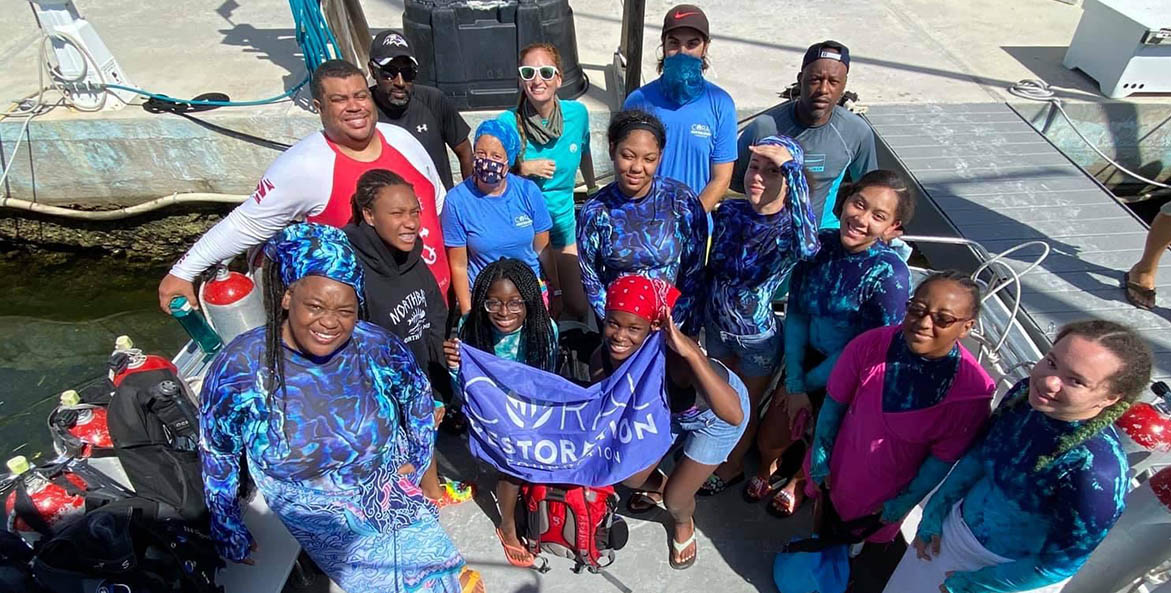Dr. Nevada Winrow was at a SCUBA summit for the National Association of Black SCUBA Divers around late 2016 when she noticed few women in the room. The observation led her to begin a discussion with a few friends about the potential barriers to the sport of SCUBA diving.
There are the obvious ones: It can be expensive, intimidating, and time-consuming. But there are also cultural nuances that exists within the Black Community related to the perpetuation of cultural narratives and practices that could explain why there is not more Black women diving.
But Winrow thought maybe she could expose more people to a sport she loves, and in particular young women of color. So she partnered with her daughter—Taylor Symon Winrow—to create Black Girls Dive Foundation in 2017.
The foundation works with girls ages 9 through 17 to teach them science, technology, engineering, robotics, arts, and mathematics through SCUBA lessons and dives. It's based in Owings Mills, Maryland, and has chapters in Maryland, Georgia, and New Jersey. Black Girls Dive students have already explored the Red Sea in Egypt, dove in aquarium tanks in Georgia, and examined oceanic blue holes in the Bahamas.
"SCUBA diving brings a deeper connection to science and ecosystems," Winrow said. "It's one thing to see it on TV, hear people talk about it, but in that space, under the water, it's transformational for their learning."
While it's possible to get certified to SCUBA dive in a weekend, Winrow said the foundation works with girls for a full year. Instructors start with students in pools to teach them how to dive. Afterwards, they move to open water instruction in quarries and the ocean. In the classroom, students learn how to operate underwater drones, study marine biology, attend lectures in conservation, and participate in conservation activities.
Each year, the foundation takes a new cohort of no more than six students into its programs in Georgia and Maryland. The program is free for the girls. The New Jersey program is affiliated with a school, so more students participate in the program there. Winrow said one student has graduated from the program and now attends Coastal Carolina University as a Marine Science major and two others are now high school seniors and are heading to college.
"More than anything, we want our students to become better stewards of our planet," Winrow said. "We want to build up their confidence, help them discover who they are and what they know, particularly as it relates to STEM [science, technology, engineering, and mathematics]."
This year, the foundation became one of the newest members of the Chesapeake Oyster Alliance, a collection of nonprofits, community organizations, oyster growers, and others committed to adding 10 billion oysters to the Chesapeake Bay.
Winrow hopes this new partnership will help expose more of her students to the Chesapeake Bay and the watershed-wide clean-up efforts that are underway to restore the system's health. She's interested in taking students diving over restored oysters reefs to monitor how they're faring or using remote-operated underwater vehicles to examine the Bay's bottom.
"We're open to all opportunities that will enhance the experience for our young ladies," Winrow said. "My girls are all about getting in the water. Any day in the water is a good day."




